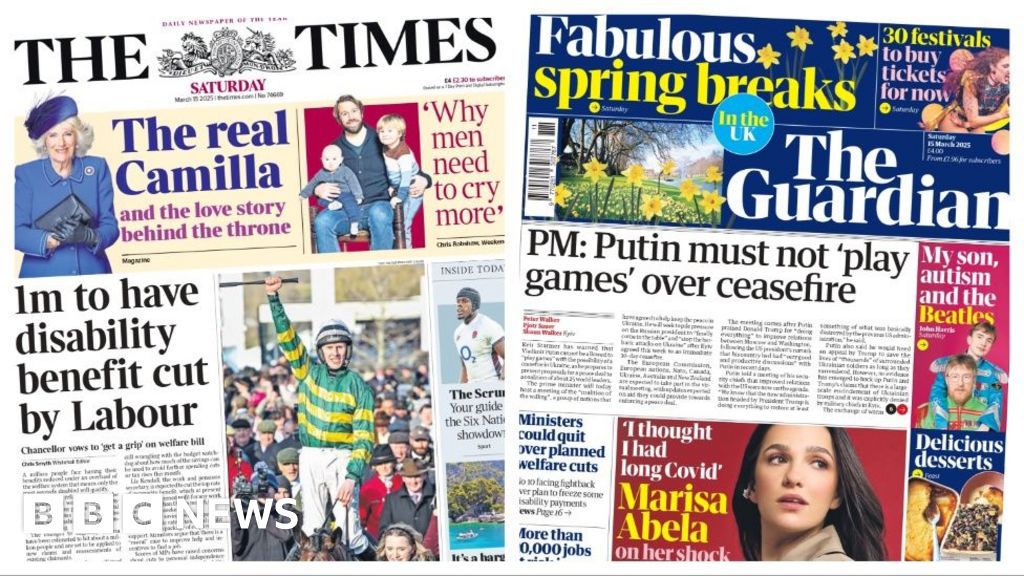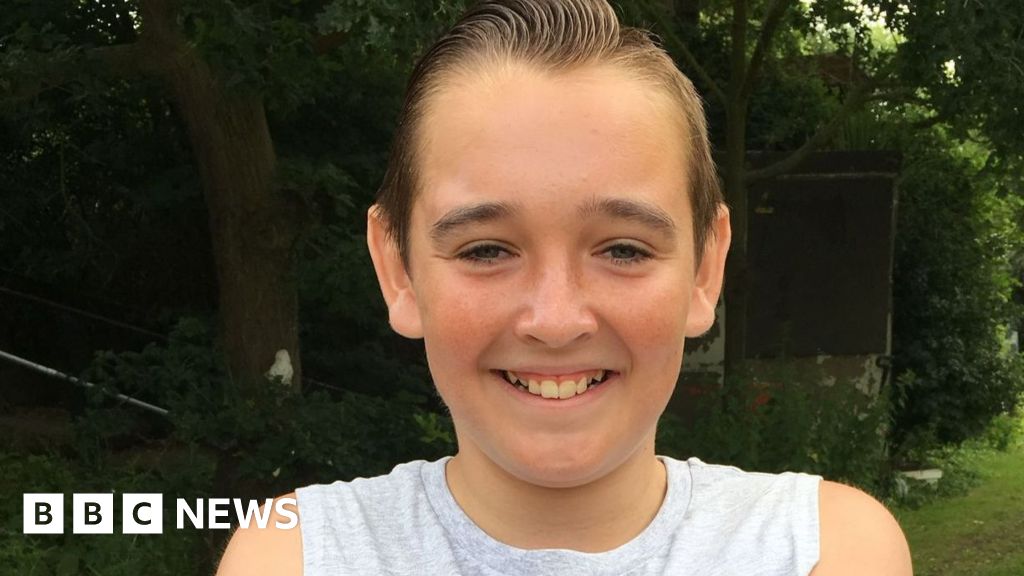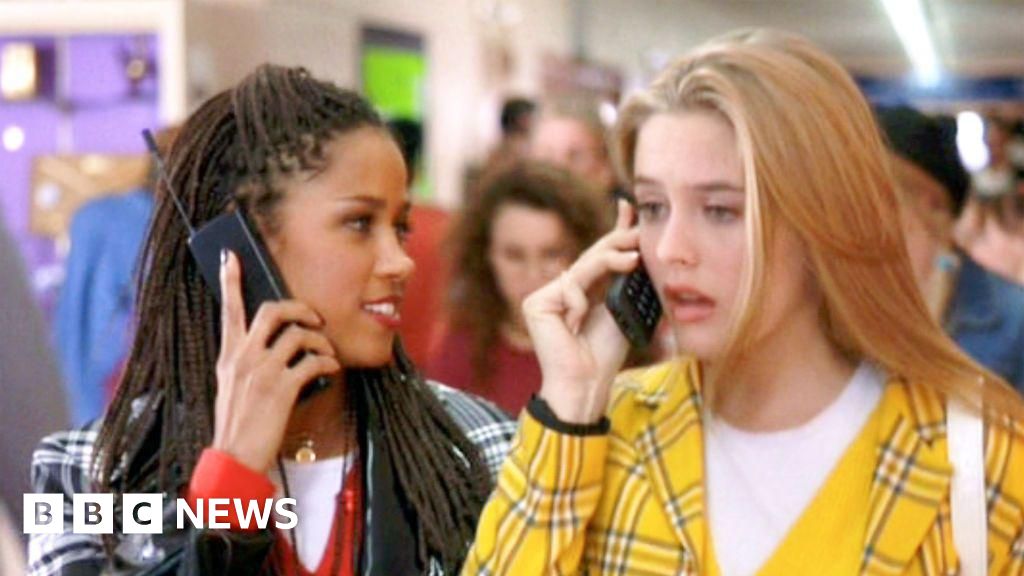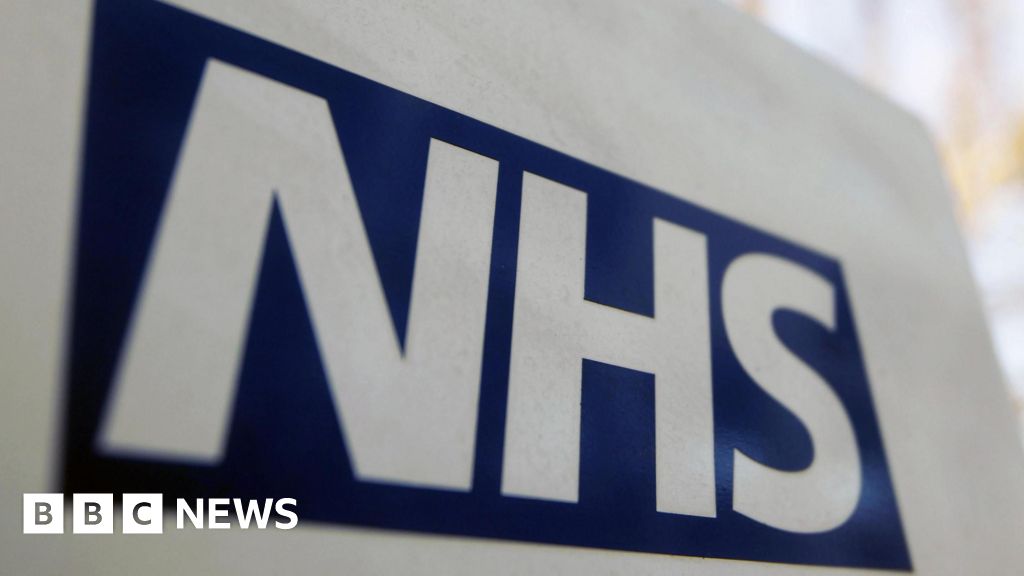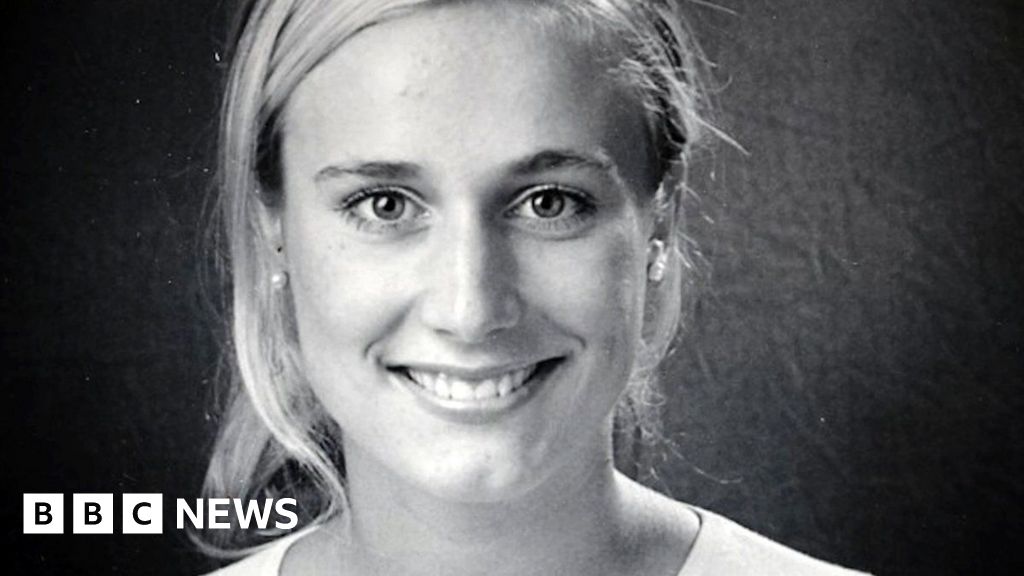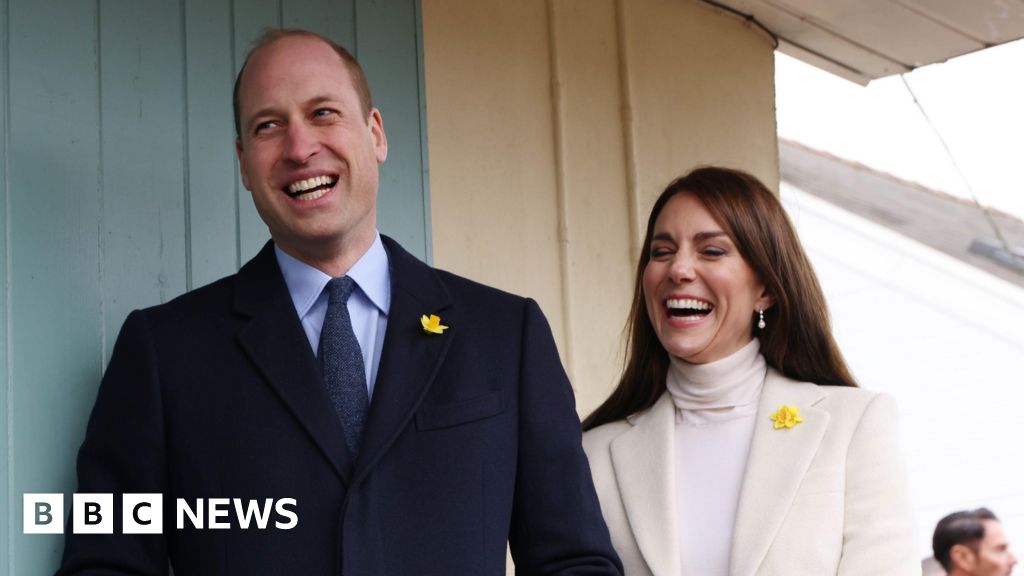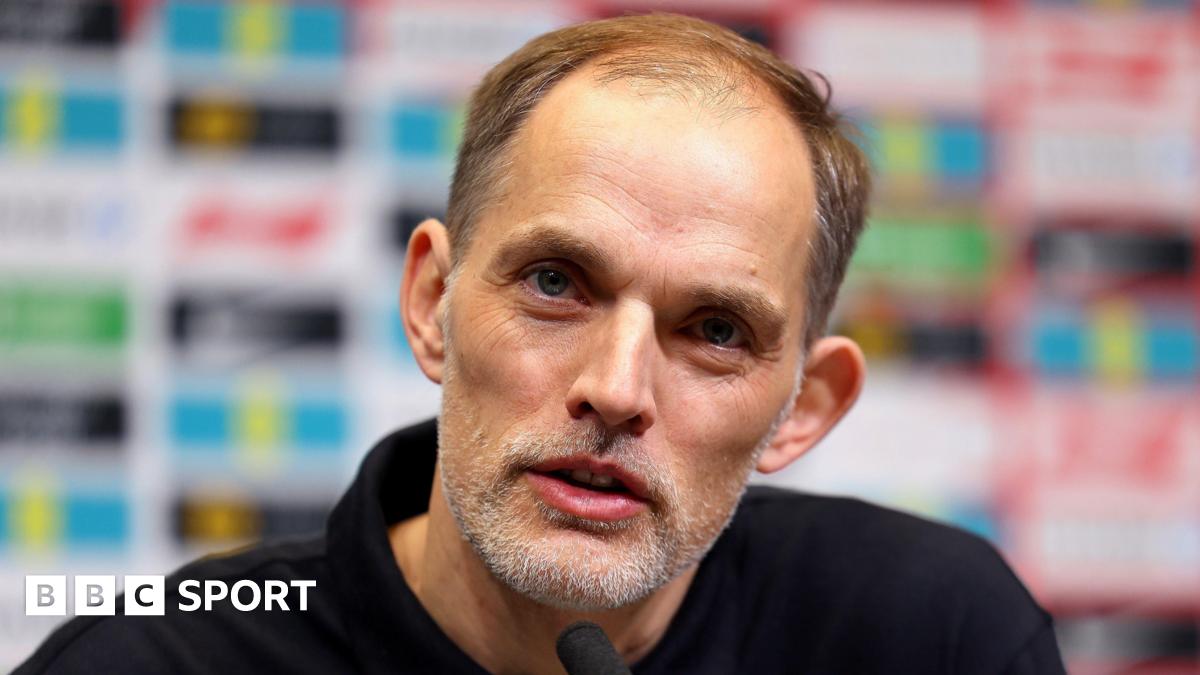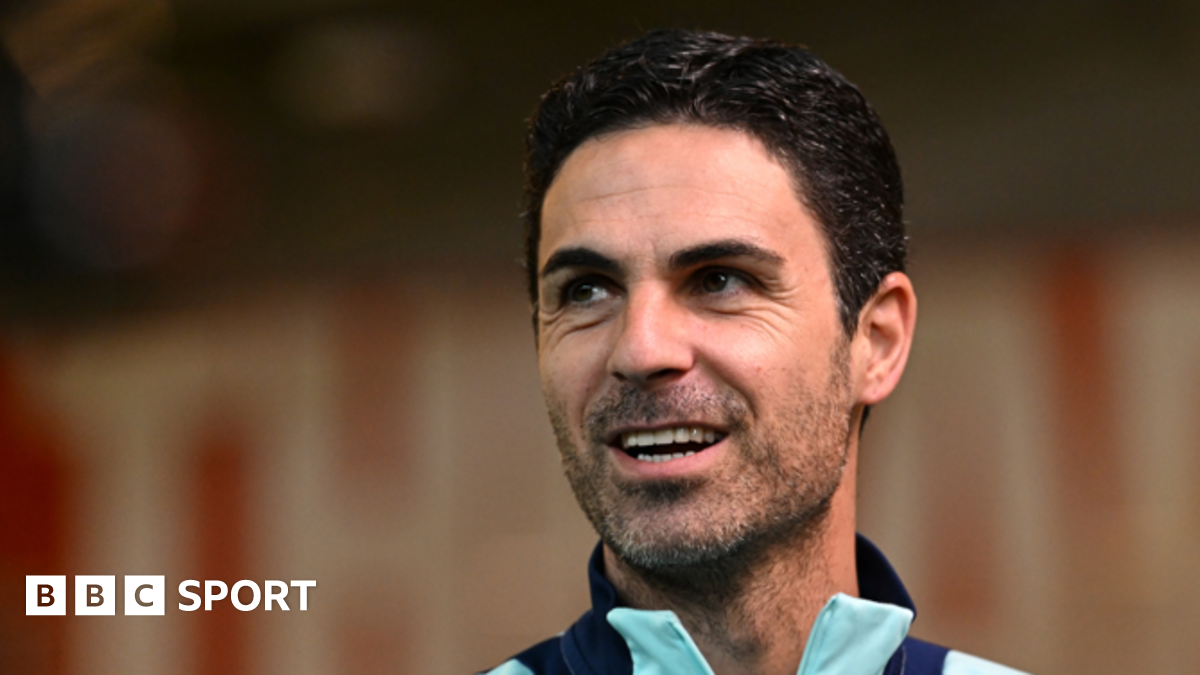7 minutes ago
By Daniel Sandford, @BBCDanielS,
Home affairs correspondent

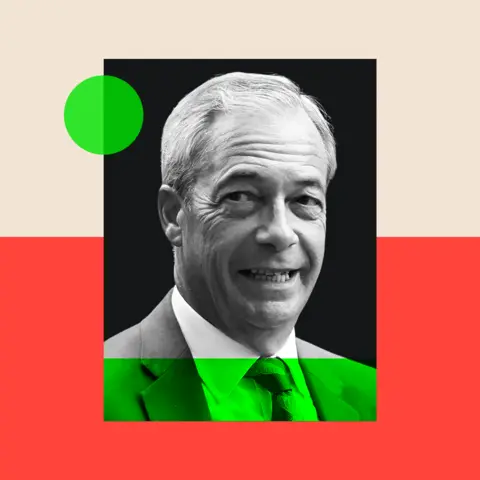 BBC
BBC
Reform UK has launched its version of a manifesto for the 2024 general election, which it is calling "Our Contract With You". The document sets out what the party's plans would be, should it win the election on 4 July.
Here BBC correspondents have analysed some of the most eye-catching pledges.
Freeze on 'non-essential' immigration
Two of Reform UK’s core five pledges are to do with migration. The party says it would freeze non-essential immigration, but concedes there would be exceptions with work in healthcare considered essential.
It plans to ban students from bringing partners and children to the UK and employers would have to pay 20% National Insurance on foreign workers (compared to 13.8% for British citizens), though there would be exceptions for the health and social care sector and very small businesses.
On the thorny issue of small boats smuggling migrants across the Channel, the party says it would “pick up illegal migrants out of boats and take them back to France”. But it does not explain how it would persuade France to accept that.
It says "zero illegal migrants" would be resettled in the UK. Asylum seekers arriving illegally would be processed rapidly and "offshore" if necessary. Those rejected would be "returned". These are quite aspirational policies as some would be very hard to implement. Successive administrations have found it very difficult to find places to send failed asylum seekers to and negotiations with France have often got bogged down quickly.
A promise to deport foreign prisoners "immediately" after their release is already government policy, but has proved hard to implement with countries that are reluctant to help.
These policies all apply to the UK as a whole.
Big tax cuts for small businesses
Reform UK pledges include some big tax cuts for small business, including introducing a corporation tax free allowance of £100k in profits and lifting the threshold when businesses have to be VAT registered to £150k from £90k. The party also promises to abolish business rates for small and medium-sized firms on the high street. This would be paid for by a 4% online delivery tax for large multinationals.
The biggest revenue raisers would come from scrapping targets for net zero - when the UK is adding no additional greenhouse gases to the atmosphere. Reform UK claims that could save £30bn a year. Government figures estimate that offshore wind is cheaper than gas over the long term and is less vulnerable to volatile oil and gas prices.
Reform UK also plans a £35bn-a-year raid on banks by ceasing to pay interest on the £700bn of bonds held at the Bank of England as a result of the post-financial crisis Quantitative Easing programme. Andrew Bailey, the Bank of England governor, has said a tax on banks would raise the cost of borrowing for people and businesses. The targeting of big business is perhaps an unusual one for a party of the right, but Nigel Farage is unapologetic for a set of pledges he describes as radical.
Royal commission for social care
The party's main idea for adult social care in England is to set up a royal commission within the first 100 days of a new government. This would draw up a national plan for a sustainable system to support people who are older and disabled in the community. The party also talks about providing tax incentives and VAT breaks and says more funding will be needed when a plan is agreed.
There have been many previous reports and inquiries into how to reform the care system. In 1999, a royal commission put forward plans for change, and in 2011, the Dilnot commission also drew up a blueprint for the future.
Many on the front line of social care say, rather than more plans, they need action. Currently care services rely on staff recruited from overseas. Reform UK says it will allow essential immigration, mainly around healthcare, but there isn’t a specific mention of social care.
Scrap net zero target
Reform UK is pledging to make big savings from government spending on net zero – that’s the UK’s pledge to take as much of its greenhouse gas emissions out of the atmosphere as it puts in by 2050. Reform claims that “scrapping net zero and related subsidies” would save £30bn per year.
The UK government is currently spending about £8bn per year on investment in emissions reduction, according to the Office for Budget Responsibility (OBR). And the Climate Change Committee estimates economy-wide investment costs, including in households purchasing electric vehicles and domestic heat pumps, will be around £50bn per year in the coming decade.
However, there are also projected to be savings to households from these zero carbon forms of energy relative to relying on fossil fuels in the coming decades. Most economists judge that the costs of the UK failing to pursue net zero will ultimately be greater than the costs of achieving it. The OBR produced a scenario of “unmitigated global warming” in 2021 which showed UK public sector net debt rising to 300% of GDP by the end of the century due to economic shocks of a hotter climate.
Ban 'transgender ideology' in schools
Reform UK puts issues and arguments around gender on the first page of its “contract" of policy proposals. It talks about “divisive 'woke' ideology”, claiming it has captured public institutions.
Within the first 100 days of government, it pledges to ban what it calls “transgender ideology” in primary and secondary schools. It says this would mean no gender questioning, social transitioning or pronoun swapping in schools, and that parents would be informed about children’s life decisions.
Reform UK also promises to replace the Equality Act and says it would scrap diversity, equality and inclusion rules.
Education is devolved so these policies would only apply in England, although the Equality Act applies to Great Britain.
Tax relief on school fees
To ease the pressures in schools, Reform UK is encouraging parents to send their children to independent schools with the promise of a 20% tax relief on fees. Many will see this as a questionable pledge in terms of the substance, scale, and benefits it would bring to millions of families who can’t afford a private education for their children. The party says it will double the numbers of pupil referral units and there will be permanent exclusions for violent and disruptive children.
Reform UK also says it will ban what it calls "critical race theory" in primary and secondary schools and any teaching of slavery must be paired with the teaching of a non-European occurrence of the same to ensure balance.
Some will see policies like these as a distraction from the numerous challenges schools face, such as teacher shortages and the increasing numbers of children with special educational needs and disabilities. There is little mention of these issues. The party also says it will cut funding to university campuses allowing political bias or cancel culture, and will scrap interest on loans for university students.
Education is devolved so these policies would only apply in England.
An extra £17bn for NHS
The party sets out an extra £17bn a year for the NHS. That’s significantly higher spending than any of the three main parties. By 2028/29, the Conservative Party is pledging around £1bn extra in cash terms for the NHS, Labour around £2bn extra, and the Lib Dems £5.8bn extra.
Reform UK says its policies would eradicate NHS waiting lists in two years. This is big talk. Waiting lists for treatments are huge. The party also says the NHS must use the private sector more to help take the pressure off its services and pledges 20% tax relief for private healthcare providers and insurance. Independent health think-tank the Nuffield Trust say this could take money out of the public purse to give to profitable business, encourage NHS staff to move to the private sector and leave the NHS worse off.
Reform UK has also called for a new NHS funding model. It wants the next government to look to countries like France, which has insurance-based health models. Health outcomes in the UK have fallen behind a number of European neighbours, but they are spending more money on health. According to the Organisation for Economic Co-operation and Development (OECD) for the period between 2019 and 2022, health spending a year per capita was $8,011 (£6,309) for Germany, $7,771 (£6,120) for Norway, $6,630 (£5,229) for France and $5,493 (£4,326) for the UK.
These policies are England-only as other nations set their own health policies.
Scrap the rest of HS2 rail link
Following two cancellation announcements in the past few years, the only section left of the high speed rail link is the one currently being built between London and the West Midlands. It’s now in its peak construction phase. The last official update to Parliament in November 2023 said £27bn had been spent on HS2 so far in 2019 prices, £24.6bn of that on the first phase. That figure will have risen since then.
The government thinks the total cost of London-Birmingham will be up to £54bn, although HS2 Ltd has come up with a higher figure. Reform says scrapping the rest of the project would save £25bn. But it’s hard to say exactly how much money would in fact be saved. We’ve asked them how they reached that figure.
Yes, less money would be spent on building, but other costs would be incurred. These would probably include substantial pay-offs to contractors, and repurposing tunnels, bridges and other pieces of infrastructure which have been built or partially built. Last year, the government said scrapping the first section of HS2 would mean paying out £11bn in “remediation costs”, again in 2019 prices.
Reform also says it would pass laws to ban London’s Ultra Low Emission Zone, a £12.50 daily charge to drive a vehicle that doesn't meet certain emission standards. It would also ban Low Traffic Neighbourhoods, which aim to reduce traffic, in part by preventing drivers using quieter residential roads as through-routes. The party would also get rid of the plan to ban sales of petrol and diesel cars from 2035.
Raising stamp duty threshold to £750,000
On housing, Reform aims to appeal to homeowners, including landlords. As part of the proposed changes to taxation, there is the idea of lifting the stamp duty threshold significantly in England and Northern Ireland. At present, those who move (rather than first-time buyers) pay stamp duty when buying a home for more than £250,000. Reform says this should rise to £750,000.
Then there are the proposals for inheritance tax to be paid only on estates of more than £2m. Only a small proportion of the population pay it, but this is aimed at those who think one day they might, especially if they have a valuable home. Scrapping previous tax changes for landlords, it says, will encourage smaller operators in the market. All of this would be very expensive for any government and raises further questions on whether the money could adequately be found elsewhere.
Renters will see there is no repeat of Labour and Conservative plans to ban no-fault evictions, with Reform arguing existing laws are adequate.
Leave the European Convention on Human Rights
Reform wants to leave the European Convention on Human Rights (ECHR) and the “foreign” court in Strasbourg that oversees that international agreement.
The ECHR is an “international” court. The UK co-founded it and provides a judge and staff. If the UK quit, it would join a club of two nations - Russia and Belarus. Critics say the ECHR interferes in the deportation of terrorism suspects or sending asylum seekers to Rwanda.
On terrorism, the Strasbourg court has not ultimately stood in the way of the UK sending suspects to other countries, providing they won’t be tortured. The court did indeed temporarily stop the first Rwanda flight, but only for as long as British judges needed to consider the policy and rule whether the country was safe. Of the 68,500 cases piled up in Strasbourg as of last year, 0.2% of them concerned the UK - and only one of those 127 cases went against the government.
Opponents of the ECHR say the UK does not need the input of other countries to do the right thing. But the convention’s supporters say membership helps the UK in its modern mission to bring other states up to our standards of fair and equal treatment.
Scrap the licence fee
There is no specific chapter dedicated to arts or the creative industries. Reform UK directs some focus at the BBC, which it calls “out of touch”, “wasteful” and “institutionally biased”. The party would scrap the TV licence fee.
The BBC’s mission is to provide impartial, high quality and distinctive output. The board of governors’ remit includes ensuring value for money for the taxpayer. The Conservatives previously launched a review into whether a subscription model, advertising model or other way to fund the corporation would work better. The BBC’s charter runs until 2027 so any changes would be implemented after that.
Also included in Reform’s policies are plans to launch an inquiry into social media harms and a review of the Online Safety Bill. That puts the onus on social media companies to remove illegal content and protect children on their platforms, with powers given to Ofcom to fine those that fail to do so.



 8 months ago
40
8 months ago
40
